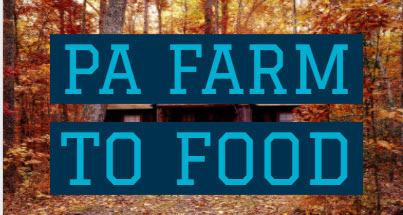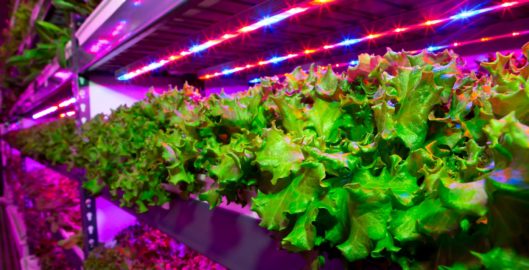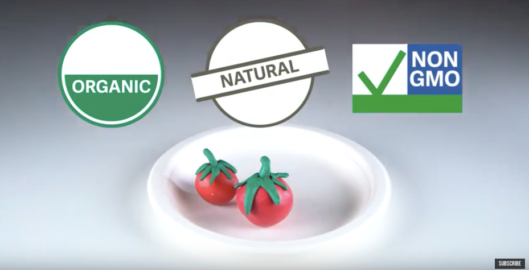GMO Labeling
Boston Globe: 3 policies for the future
On 26, Nov 2018 | In Blog, Featured, GMO Labeling, GMO’s and The Environment | By admin
Food is going high-tech — policy needs to catch up with it
BY THE BOSTON GLOBE EDITORIAL BOARD
or generations newspaper editorials have been the “eat your spinach” part of the operation. But what if that spinach can now be organic baby spinach, or hydroponically grown? What if we can eat it year round — and from just around the corner?
With a warming planet, the need for high-tech food and high-tech food policies is undeniable. Both are going to play an increasingly vital role in the planet’s future — and the way we eat. Here are a few ways to use science to steer food into a more sustainable path.
Learn to love GMOs, and resist efforts to demonize or prohibit them. Genetically modified food sets off alarm bells for purists, but crops designed to last longer or resist disease are increasingly necessary.
The good news is that new federal labeling regulations, which could become final by Dec. 1, will preclude the kind of state-by-state labeling regulations that Vermont had already indulged in and that Massachusetts has been perpetually on the cusp of enacting.
The even better news is that the science of food — of producing fruits with a longer shelf life, wheat that requires less water or fertilizer — is advancing so fast that even the foodie fearmongers can’t keep up.
First on the federal role: While moving at a glacial pace, the US Department of Agriculture has at long last brought forth a final set of regulations designed to implement a law passed by Congress in 2016 to deal with standards for disclosing bioengineered ingredients. Not surprisingly the new regs generated a huge amount of controversy — more than 14,000 comments received by the agency during the public comment period.
Assuming the regs are indeed finalized Dec. 1, they won’t go into effect until Jan. 1, 2020. What consumers are likely to notice is that GMO labeling will become “BE food,” or “bioengineered food.” And since at least two-thirds of all foods sold in the US contain some ingredients in that category — consumers are indeed likely to see it everywhere.
What it will accomplish is to prevent every state and locality from drafting its own labeling laws and, in the process, making the free movement of good products from state to state difficult if not impossible. And it will let innovation continue unhindered.
The future of seafood in the United States is aquaculture. Even the king of seafood, Roger Berkowitz, acknowledges that. “The technology has gotten so good with submersible pens,” said Berkowitz, chief executive of the Legal Sea Foods empire. “It’s a game changer.”
Berkowitz is particularly excited about the prospect of fish farms in federal open waters. Aquaculture in Massachusetts is largely confined to shallow waters; think oyster beds on Cape Cod. Of course, this country for years has talked about offshore fish farming, but the time has come, with wild fish stocks dwindling. In 2017, the US imported a record amount of seafood, more than 6 billion pounds, and exported only about 3.6 billion pounds.
While Massachusetts and some municipalities have regulated aquaculture, what’s needed now is a federal regulatory framework to support aquaculture in the ocean. It hasn’t been easy navigating the concerns of environmentalists, fishermen worried about their own livelihoods, and ships attached to particular routes. The ocean may be big, but surprisingly not big enough to accommodate everyone’s needs.
Congress can play a big role: Get a bill that everyone likes. Here’s another thought: How about supporting aquaculture as part of the farm bill, something US Representative Seth Moulton would like to see. With Democrats taking back the majority in the House, maybe this could get done next year.
Clear federal policies could enable the prospect of fish farming using the infrastructure of offshore wind turbines. Without such policies, the future of fish farming will remain murky, because these operations are expensive and investors don’t like uncertainty.
“No one would spend a dime on that,” said Peter Shelley, senior counsel at the Conservation Law Foundation, which has been closely following the development of aquaculture in the ocean. “It makes Cape Wind look like a sure bet.”
Assume change. Farm and food policies tend to deal with what we eat and grow now, but climate change should end that way of thinking. The government and industry need to anticipate disruption, and be ready to adapt, rather than pour money into trying to preserve vanishing industries that can’t be sustained any longer.
Rising temperature of oceans, for example, have forced the cod and lobsters to flee north to colder waters. We lament the loss of cod in Massachusetts, but Southern fish species are flocking to us now. In other words, we need to get used to “Cape Mahi-Mahi.”
Warmer temperatures in New England could extend the growing season for blueberries, strawberries, peaches, and corn. That could be a silver lining for consumers and farmers’ markets.
Food policy is often inherently conservative: organic food fans and proponents of farm subsidies want different versions of the same thing, which is to cling to the way food’s always been. But food is going to change whether we like it or not — and our food policies should try to direct those changes, not stop them.
http://apps.bostonglobe.com/ideas/graphics/2018/11/the-next-bite/the-supply-chain-editorial/
Non-GMO food labels are incredibly misleading—and could be harming you and the environment
On 30, Oct 2017 | In GMO Labeling | By admin
By Quartz Media
We’re surrounded by information about the health and nutritional benefits of different food, but a lot of it conflicts—and it’s leaving people more confused than ever about how to make healthy food choices. Should we eat all organic? Does our food need to be natural, and fresh? One recent fad is to avoid genetically modified food.
GM food has negative connotations for many consumers because of general mistrust of the food production industry, but also because anti-biotech activists have been so effective at stoking concerns. It’s led to an sharp increase in non-GMO labels, even on products like salt, which can’t be genetically modified because sodium chloride is an inorganic compound that doesn’t contain genes.
But non-GMO labels do more than placate people concerned about scientists secretly tinkering with their food. They might persuade people to make a poor food choice. That’s because genetically modifying food can actually make it safer, by limiting the need for, say, pesticides. According to Pam Ronald, who studies genetics at the University of California, Davis and whose husband is an organic farmer, farms going non-GMO to meet consumer demand are causing major damage.
“These non-GMO labels have proliferated, and they’re really a problem,” Ronald told Quartz. “Because there’s no regulation, they can just spray anything they want. So what’s happening is… they’re going back to using [far] more toxic compounds. And I think that’s really a disservice to the consumer to market it as somehow being more healthy—when of course, it’s not, and it’s also more harmful to the environment.”
(A representative from the non-GMO Project was not available for an interview.)
Click here to learn more on how misleading labels confuse consumers, and some expert advice on how to actually make healthier choices. (Hint: it’s not choosing non-GMO.)
USDA letter on federal GMO labeling law
On 02, Mar 2017 | In Blog, Featured, GMO Labeling | By admin
On July 29, 2016, President Obama signed into law an Act amending the Agricultural Marketing at of 1946 which provides for a national bioengineered food di
Massachusetts Groups Oppose Food Labeling Bill
On 02, Sep 2014 | In Blog, GMO Labeling | By admin
Key Leaders Point to Excessive Consumer Costs, lack of Scientific Justification
A coalition of Massachusetts and national groups is voicing strong opposition to mandatory state food labeling bills being considered by the Massachusetts legislature. Bills aimed at forcing food producers and farmers to label any food that may have been derived from genetically modified crops would hurt consumers, small businesses and farmers.
All the leading scientific bodies agree that genetically modified foods are no different from foods derived from conventionally bred crops. The U.S. Food and Drug Administration, the American Academy of Pediatrics, and The American Medical Association are a just a few that have found these foods to be as nutritious and safe as those. The American Association for the Advancement of Science states, “Legally mandating such a label can only serve to mislead and falsely alarm consumers.”
Massachusetts’ consumers wishing to avoid foods derived from genetically modified crops already have that choice under the USDA National Organic Program – a federal, voluntary, marketing scheme. “We support full disclosure of ingredients and preparation methods, but such labeling efforts should be made at the federal level for consistency and uniformity. It is nearly impossible to isolate and identify those that may have used GMO’s on a state level,” said Chris Flynn, President of the Massachusetts Food Association.
“Forced labeling will result in higher food costs for Massachusetts consumers of as much as $500 per year. That’s part of the reason the New Hampshire legislature rejected it this year and our legislature should as well,” said Bill Rennie, Vice President of the Retailers Association of Massachusetts. Rennie also noted voters in California and Washington also rejected forced labeling referendums in the last two years, demonstrating that consumers don’t want to pay more for food due to state government labeling mandates.
In addition to genetically modified crops being safe and nutritious, there are also environmental benefits. These crops require less water, less pesticide and herbicide use, and they produce much larger crop yields.
“The current anti-GMO zeal is largely based on misinformation, it is not scientifically substantiated, but rather anti-science internet gossip and well-organized fear-mongering that profits some individuals and organizations. This type of misinformation does a disservice to innovation and the future of our society and our environment,” said Dr. Albert Kausch of the College of Environment and Life Sciences, University of Rhode Island. Kausch, who has worked in the field of Plant Genetics, Agriculture and Agricultural Biotechnology for 25 years added, “The unintended consequences of these bills may be far more reaching than their authors realize.”
Coalition members that support voluntary food labeling and oppose costly, mandatory labeling of foods derived from genetically modified crops include:
Massachusetts Food Association
• Retailers Association of Massachusetts
• Massachusetts Biotechnology Council
• Associated Industries of Massachusetts
• Massachusetts Association of Dairy Farmers
• Northeast Agribusiness and Feed Alliance
• Grocery Manufacturers Association of America
• Biotechnology Industry Organization
For more information on the expense of unnecessary labeling and the environmental and nutritional benefits of GE products, visit MaFarmtoFood.org and @MAFarmtoFood














